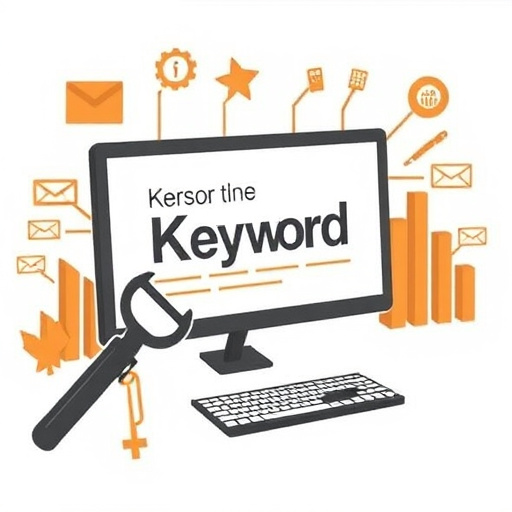In local search marketing, understanding user intent behind keywords is crucial for success. Businesses should conduct thorough keyword research using tools like Google Keyword Planner and SEMrush to identify high-intent, location-specific long-tail keywords. Optimize website content, meta titles, descriptions, and speed using tools like Google PageSpeed Insights to align searcher intent with business offerings, enhance user experience, and drive conversions. Measure success through KPIs such as CTRs, conversion rates, and average position gains, and adapt strategies based on algorithm changes, industry trends, and SEO services to boost organic traffic.
In today’s digital landscape, successful local businesses must master the art of intent-based keyword targeting. This powerful strategy ensures your brand appears at the top of local search results, driving relevant traffic and conversions. This article delves into understanding intent-based keywords in local search marketing, explores effective optimization strategies, and provides insights on measuring success while adapting to algorithm changes. Embrace these tactics to enhance your local search visibility and attract the right customers.
- Understanding Intent-Based Keywords in Local Search Marketing
- Strategies for Effective Targeting and Optimization
- Measuring Success and Staying Ahead of Algorithm Changes
Understanding Intent-Based Keywords in Local Search Marketing

In local search marketing, understanding user intent behind keywords is paramount to success. Intent-based keywords go beyond simply searching for a business; they reveal what users are trying to achieve at that moment. For instance, someone searching for “best SEO company Plano” isn’t just looking for any SEO services—they intend to hire an expert in their area. This shift from informational to transactional search queries is crucial for businesses aiming to rank highly locally.
By targeting intent-based keywords, a local business can ensure its online presence aligns with customer expectations. For example, a company specializing in web design South Florida would tailor their SEO marketing services to address the specific needs of potential clients seeking website development in their region. This strategic approach not only improves visibility in local search results but also fosters higher conversion rates by meeting users’ immediate and targeted needs.
Strategies for Effective Targeting and Optimization

To master local search marketing that targets intent-based keywords, businesses must employ strategic tactics for effective targeting and optimization. Begin with in-depth keyword research services to identify high-intent terms relevant to your local market. Tools like Google Keyword Planner and SEMrush can help uncover long-tail keywords specific to location and user needs. Once identified, optimize your website content, meta titles, and descriptions to accurately reflect these keywords, ensuring a strong match between searcher intent and your offerings.
Additionally, focus on website speed optimization as a crucial element of local SEO services. A fast-loading website not only enhances user experience but also improves search engine rankings. Utilize tools like Google PageSpeed Insights to identify bottlenecks and make necessary adjustments to reduce load times. This strategy not only attracts more local traffic but also encourages visitors to engage deeper with your content, ultimately driving conversions and business growth.
Measuring Success and Staying Ahead of Algorithm Changes

Measuring success is a crucial aspect of local search marketing, enabling businesses to understand their strategies’ effectiveness and make data-driven adjustments. Key performance indicators (KPIs) such as click-through rates (CTRs), conversion rates, and average position gains provide insights into how well a campaign is performing. By tracking these metrics, marketers can identify high-performing keywords and optimize campaigns accordingly, ensuring that resources are allocated efficiently. Regular analysis also helps in understanding user behavior and preferences, allowing for the creation of more relevant content and targeted advertising.
Staying ahead of algorithm changes is another vital task in local search marketing. Search engine algorithms evolve to provide users with more accurate and relevant results. Marketers need to be agile and adaptable, continually refining their strategies to align with these updates. This involves keeping abreast of industry trends, staying informed about algorithm changes, and leveraging the latest SEO marketing services. Custom website design plays a significant role here by ensuring that websites are optimized for both users and search engines, thereby increasing website traffic organically.
Local search marketing that targets intent-based keywords is a dynamic strategy essential for businesses aiming to thrive in the digital age. By understanding user intent behind local queries, optimizing content and listings accordingly, and continuously measuring performance against algorithm shifts, businesses can enhance their online visibility and attract the right customers. This approach ensures that when local folks search for services or products, your business appears as a relevant, reliable solution, ultimately driving growth and success.














